
Joshua Redman, second from left, will play at the University of Maryland this Sunday with his new collective, James Farm. Courtesy Jimmy Katz.
by Giovanni Russonello
Editor-in-chief
At allmusic.com, the online granary for music criticism, Joshua Redman’s biography calls him a “talented bop-based tenor man … who will probably never be an innovator.” If we’re feeling charitable (toward the writer), we can assume this blurb was posted early in Redman’s career and never fully updated. That’s the case with a number of allmusic write-ups. Ever since the saxophonist won jazz’s most prestigious award in 1991 and plunged into the New York City scene with all the inevitability and immediacy of a meteorite, he’s chosen his musical paths with little regard to uniformity or idiomatic constraints. Or, as he insists in our interview below, those paths have been choosing him. In short, Redman has made innovation seem like second nature.
For a passing moment in the early 1990s, Redman was that decade’s answer to Wynton Marsalis – a hip, young spokesman for jazz traditionalism. He was in touch with jazz’s legacies, and he pushed against the boundaries of the acoustic bop quartet without rolling over them. Then, in 1996, he released Freedom in the Groove, a love poem to the urban rhythms of the late 20th century that didn’t sound much like anything he had made before. With his famous Elastic Band, an electric project, Redman continued down the road that runs between hip-hop, funk and jazz. In 2004, he helped found the SFJazz Collective, a midsize working band of major young improvisers, commissioned to create fresh compositions and modern arrangements of old tunes.
Today, Redman’s big project is James Farm, which will perform at the University of Maryland’s Clarice Smith Performing Arts Center this Sunday. A musical cooperative between four of the scene’s most compelling jazz musicians, the band eschews swing feel or the standard harmonic logic of bebop. Pianist Aaron Parks, bassist Matt Penman and drummer Eric Harland all contribute compositions and seem to play equal roles in shaping the group’s aesthetic – one that lives in between indie rock, contemporary classical music and early jazz-rock fusion.
Redman’s sound has always been intuitively modern; his bobbing rhythms and breathless melodies are packed with the brio of the hard-bop tenor titans, but they also bear the bounce of the emcees in the Native Tongues collective. Singular as it is, never has Redman’s identity been so integrated – subverted, even – into the identity of a group as it is in James Farm. In our conversation, he explained why that is.
James Farm, “Polliwog”
[audio:https://www.capitalbop.com/wp-content/uploads/2011/09/02-Polliwog.mp3|titles=Polliwog]
CapitalBop: You like to have a working band – it’s something you’ve done a lot over the years. What is the identity of James Farm, and what in particular do you like about playing with these guys?
Joshua Redman: I feel like especially with modern jazz in this day and age, the best music is made by bands, not by individuals, so it’s always been a priority of mine. But this [James Farm] is a unique band because it’s probably the first small-group project that I’ve been involved with over an extended period of time that’s really a collective ensemble. We organized and formed as a band – not as the Joshua Redman Quartet or the Aaron Parks Quartet or something like that. That kind of band mentality and philosophy has really informed everything we’ve done. Certainly, I contribute compositions and help to shape the musical direction of the band, but no more so than any of the other members…. Everyone writes for the band, everyone has an equal say in how our music develops.
“There’s thousands of tenor saxophonists who can play up and down the instrument, can play anything…. What does distinguish the sound of jazz these days is the particular interaction and conversation and musical camaraderie – the moods, the textures, the grooves – that bands can create.”
CB: When you say that in the modern age, group work takes on a particular level of importance, why is that?
JR: For me, especially with small-group jazz, some of the great bands of the ’50s and the ’60s – John Coltrane’s classic quartet, Miles Davis’s really important quintets, Ornette Coleman’s groups – certainly bore the imprint of the leaders and the figureheads, but they were really collective expressions. You can’t imagine the John Coltrane Quartet without the sound of Elvin Jones, and without the sound of McCoy Tyner and Jimmy Garrison. They really defined that sound. And in a certain sense, from that era forward, I guess the feeling of group interaction and spontaneous communication [has been dominant]. The rhythm section doesn’t simply provide a comfortable background for the individual soloists to improvise over, but there’s a sense that we’re all in it together in a moment, crafting something together. And the kind of intensity and energy and conversational give-and-take that can happen in a band is really where a lot of the excitement and inspiration for jazz lies.
Also, these days, there’s no shortage of brilliant soloists. There’s so many. Just take the tenor saxophone: There’s thousands of tenor saxophonists who can play up and down the instrument, can play anything. I think that’s a great thing, but I think what does distinguish the sound of jazz these days is the particular interaction and conversation and musical camaraderie – the moods, the textures, the grooves – that bands can create.

Joshua Redman. Courtesy Evan Shay/flickr
CB: For you, it’s been a major tenet to acknowledge the importance of contemporary influences, and the influences of other genres, on jazz. What are some of the influences from outside the traditional lineage of jazz that have been brought to bear in James Farm?
JR: I wouldn’t say it’s been a tenet of mine to acknowledge the influence of other music. It hasn’t been a philosophy or ideology for me, it’s just been something that’s come naturally. It’s not that I’ve ever been concerned with making a statement like, “Jazz needs to acknowledge the music around itself in order to be viable, or in order to survive.” I don’t really feel like that. I just feel that it comes naturally to me – and I think it comes naturally to a lot of jazz musicians that I’ve played with – to incorporate the music that they love, jazz and otherwise, into what they’re doing.
That’s certainly true of the members of this band. Aaron Parks, for example, listens to a ton of modern rock and electronic music. Matt, as well, listens to a lot of rock. And especially with their compositional focus and the things that they listen to, I think you can feel that kind of modern alternative rock thing in a lot of what we do. Certainly, a little funk, a little hip-hop, but maybe a little more of the rock thing. In terms of our approach to atmosphere and texture, even though we don’t use electronics, all of us listen to some electronic music, and I think you can find that in some of the stuff we do. There’s also a slight classical sensibility in some of the harmonies.
More than anything, this band really developed with a song-based approach. We’re improvising all the time – improvisation is a huge part of what we do – but I think we’re all interested in telling stories through the songs that we write and that we play, and having the songs be more than simply templates for great individual solos. When we’re writing songs, we’re thinking differently about structure and the way individual improvisations can work within that structure.
CB: Two of your biggest influences are John Coltrane and Sonny Rollins. Can you choose one word for each of them? The way that you hear them and the way that they speak to you?
JR: For John Coltrane, maybe I would say “integrity.” Because I feel that perhaps more than any other jazz musician, Trane’s body of work over his entire musical life, has had something pure about it: the pure pursuit of musical expression. I get the sense – not just in listening to the actual pieces of music that he recorded and played, but considering what he represents as an artist – he’s constantly striving to find his voice, to say something original and genuine and true and pure.
With Sonny, I guess “storyteller.” For me, Sonny is kind of the ultimate improviser because he has this ability to be completely spontaneous and in the moment, and at the same time create these improvisations that have so much internal emotional logic and have such a sense of theme and development and narrative. He truly is, for me, one of the great improvisers.
CB: What were the last three things you listened to?
JR: I think the last thing I listened to was probably the first movement of Brahms’ first symphony. I was digging that. And then before that I was checking out this Flying Lotus record, Cosmogramma, because I hadn’t heard that one before. And then before that I was listening to Stan Getz – that classic record he did with Charlie Byrd, Jazz Samba.
—
James Farm performs at 7 p.m. on Sunday at the University of Maryland’s Clarice Smith Performing Arts Center. Tickets cost $45, or $9 for UMD students, and they are available here. More information is available here.


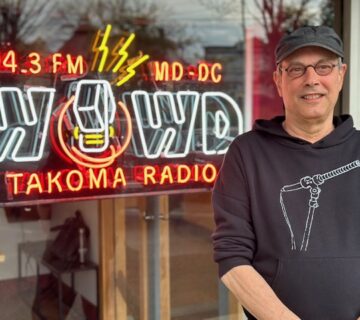
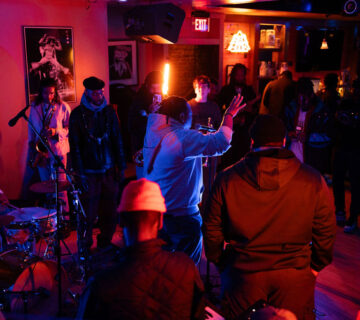
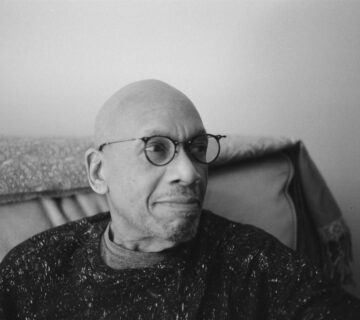
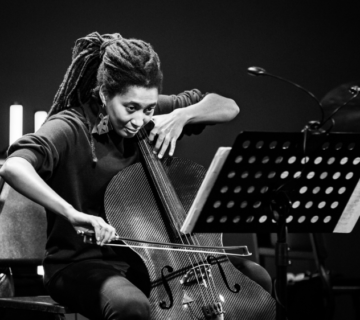
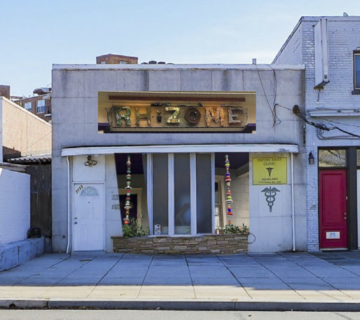
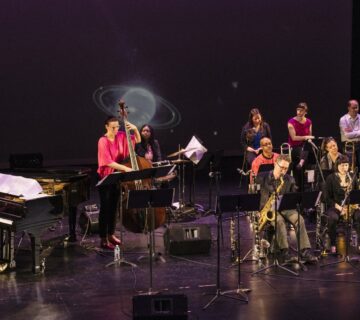
Join the Conversation →